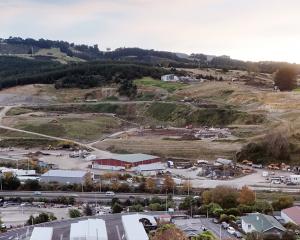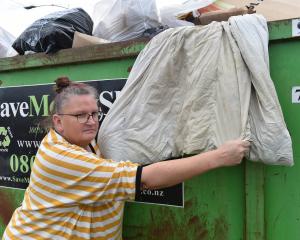More than 6000 out-of-town Games participants and supporters are expected in Dunedin by this weekend for what is New Zealand's largest multisport event.
But Otago Motel Association president Richard Hanning said moteliers were unlikely to reap much of the estimated $5 million benefit the week-long Games brought to Dunedin because staff at the i-Site visitors centre, which is owned by the Dunedin City Council, had broken an agreement to promote the halls of residence only if other accommodation was fully booked.
"We put a lot of marketing effort into Dunedin," Mr Hanning said.
"So it's a concern if the rug gets pulled from under our feet," he said.
In response, council and i-Site staff said they were surprised at the complaint.
They were unaware of any agreement and accommodation arrangements were the same as for previous Masters Games, they said.
Mr Hanning said moteliers surprised at low numbers of Masters Games bookings had been dismayed to discover the visitors centre was directing participants to halls of residence.
Older moteliers told him this broke an agreement made between the city council and accommodation providers "some time ago" that halls of residence would be used only in "emergencies or overflow situations".
Association members in Dunedin still had 1667 rooms available during the 10 days of the Masters Games, Mr Hanning said.
Mr Hanning said halls of residence were full of fee-paying students for much of the year, so he questioned their need to take business away from motels.
"It's difficult economic times, so this is the last thing we need to see," he said.
He questioned whether halls of residence had resource consents to operate like motels or hotels.
An executive meeting of the Otago Motel Association has been called for Tuesday to discuss the issue.
The association was seeking a meeting with council staff, Mr Hanning said.
Council strategy and development general manager Sue Bidrose said nothing had changed in the way accommodation was handled by the visitors centre.
Historically, halls of residence had been used for Masters Games accommodation because commercial providers' room-occupancy rates were often above 80% during February.
"So I'm surprised anyone is upset."
Visitors centre team leader Louise van de Vlierd said halls of residence have "always been where Masters Games participants stayed" but that if someone asked for a motel then they were put in contact with one.
Ms van de Vlierd was unaware of any agreement to use halls of residence only if other accommodation was fully booked.
Ms Bidrose said the council wanted to "work positively" with the city's moteliers.
Council resource-consent manager Alan Worthington said student halls of residence were granted resource consent for commercial residential activity nine years ago.
The consent allowed the halls to charge a daily tariff.
Consent was applied for, and granted, after the question of their eligibility to take non-student fee-paying guests was raised in 2003, Mr Worthington said.












